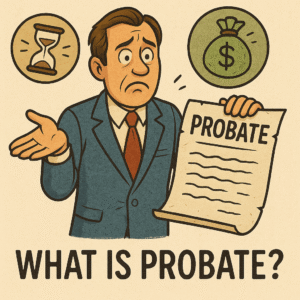Every adult in Ontario should have an estate plan in place. Though it may be uncomfortable to make decisions regarding incapacity and end-of-life care before you need to, the fact is that doing so can give you and the people you love peace of mind.
Life is constantly evolving, and with each major change, it becomes crucial to revisit and update your estate plan to ensure it accurately reflects your current wishes and circumstances. Regularly reviewing and updating estate plan ensures that your assets are distributed according to your desires, minimizes potential conflicts among beneficiaries, and maximizes the financial benefits for your heirs.
When your beneficiaries change
Getting married or divorced, the death of a loved one, and the birth of a child or grandchild can affect your heirs. After any of these events, it can be wise to update your plan to remove estranged parties and include new parties.
Failing to update your estate plan can result in unintended distributions, where assets might go to individuals you no longer wish to include or miss those who are now significant in your life. Revising your will, trusts, and beneficiary designations on financial accounts and insurance policies ensures that your assets are allocated according to your current wishes and that your loved ones are appropriately provided for. This helps to ensure that your wishes are honored and provide clarity and security for your loved ones, thereby preventing potential legal complications and emotional distress.
When your wishes change
People change over time. Your ambitions and beliefs can be different at age 30 and age 60. Life is dynamic, and what you may have thought was important to you when you initially created your estate plan may no longer align with circumstances. Changes in your personal values, relationships, or financial goals can all prompt a reassessment of how you want your assets to be managed and distributed. For instance, you might decide to increase the inheritance for a particular beneficiary, include new charitable donations, or alter the distribution method to better reflect your evolving priorities.
As such, you should update your plan if it no longer aligns with your wishes as it can result in your assets being distributed in ways that no longer match your intentions, potentially causing confusion and disputes among your heirs.
When your resources change

A primary component of administering an estate involves locating assets, assigning values and distributing property. If your plan is outdated, your estate executor can face avoidable obstacles that slow or derail the administration process. When financial resources change, whether through an increase or decrease in wealth, it’s imperative to reassess and update your estate plan accordingly to ensure that it remains effective and aligned with your goals. Significant changes in financial circumstances, such as receiving a large inheritance, selling a valuable asset, starting a successful business, or experiencing financial hardship, can impact how you want your assets to be distributed and managed upon your death.
Changes in finances can also affect the complexity of your estate, potentially warranting updates to your estate planning strategies and structures. For example, if your estate has grown significantly, you may need to implement advanced estate planning techniques, such as asset protection trusts or gifting strategies, to preserve and transfer your wealth efficiently. Conversely, if your estate has decreased in value, simplifying your estate plan and reducing administrative costs may be prudent.
When you update your will and other estate planning documents after these events, you minimize the chances that outdated information or substitute decision-making appointments will create conflict. Consulting with a knowledgeable estate planning lawyer can provide valuable guidance in navigating these changes and ensuring that your estate plan remains tailored to your evolving needs and objectives.





